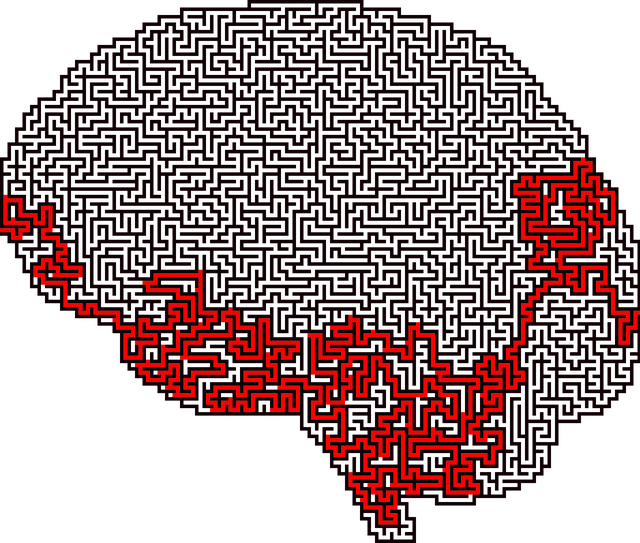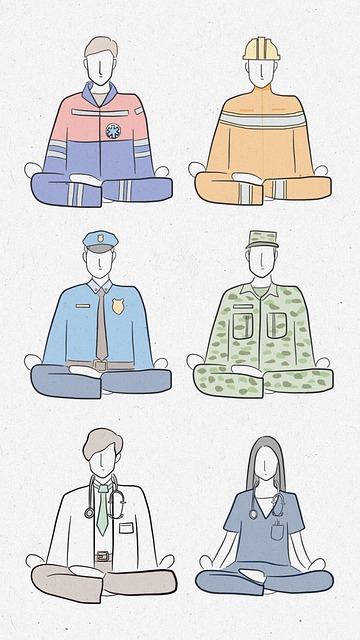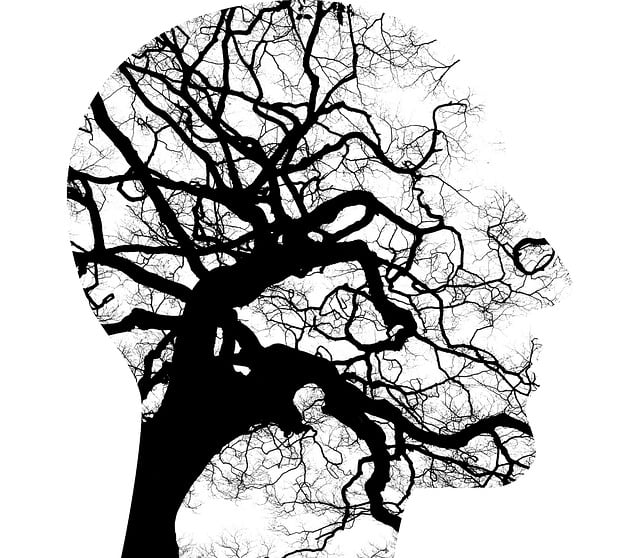Burnout among healthcare providers treating adults with neuro disorders is a growing concern, driven by high stress levels. Early recognition of burnout symptoms is vital, focusing on tools like mental wellness journaling, emotional intelligence training, and regular exercise to manage stress, improve patient interactions, and promote overall well-being. Effective strategies include CBT for negative thought patterns and mindfulness practices like meditation and yoga. Building resilience through therapy for adults neuro disorders, trauma support, and coping skills development is key. Maintaining a sustainable work-life balance, with cultural sensitivity, clear boundaries, time management, and relaxing activities, further reduces burnout risk.
Healthcare provider burnout is a growing concern, impacting not just individuals but the broader healthcare system. This comprehensive guide explores strategies to prevent and alleviate burnout among healthcare workers. We delve into the root causes, from identifying red flags and risk factors to examining evidence-based practices like Cognitive Behavioral Therapy (CBT) and mindfulness techniques. Additionally, we emphasize building resilience and achieving a sustainable work-life balance, crucial elements for long-term well-being, especially for those managing adult neuro disorders.
- Understanding Burnout Among Healthcare Providers
- Identifying Red Flags and Risk Factors
- Cognitive Behavioral Therapy (CBT) for Burnout Relief
- Mindfulness and Stress Reduction Techniques
- Building Resilience and Sustainable Work-Life Balance
Understanding Burnout Among Healthcare Providers

Burnout among healthcare providers is a growing concern, with high stress levels and demanding work environments contributing to physical and emotional exhaustion. This phenomenon often manifests as a loss of passion for one’s job, cynicism, and reduced professional efficacy. Healthcare workers, especially those treating adults with neuro disorders, face unique challenges due to the complex nature of their patients’ needs and the constant demand for specialized therapy.
Recognizing burnout early is crucial for implementing effective prevention strategies. Simple yet powerful tools like mental wellness journaling can help healthcare providers process their emotions and reflect on personal boundaries. Additionally, emotional intelligence training equips professionals with skills to manage stress, improve patient interactions, and enhance overall emotional well-being promotion techniques. Incorporating regular exercise guidance into daily routines further fosters a sense of balance and resilience against burnout.
Identifying Red Flags and Risk Factors

Burnout among healthcare providers is a growing concern, and identifying red flags early is crucial for prevention. Healthcare professionals may exhibit signs of stress, fatigue, or disengagement long before it becomes severe. Some key risk factors to look out for include high workload, lack of control over work processes, insufficient rewards, and a supportive work environment. For adults with neuro disorders, these indicators might manifest differently; they may show decreased productivity, increased errors, or abrupt changes in behavior.
In the context of therapy for adults with neuro disorders, emotional healing processes and empathy building strategies play a pivotal role. Mental wellness coaching programs can be tailored to address specific challenges faced by healthcare providers in managing their workload and stress levels. By incorporating these approaches, not only do we support mental health and prevent burnout but also enhance patient care as well-being professionals are better equipped to provide compassionate service.
Cognitive Behavioral Therapy (CBT) for Burnout Relief

Cognitive Behavioral Therapy (CBT) has emerged as a powerful tool for alleviating burnout among healthcare providers. This form of therapy focuses on identifying and changing negative thought patterns and behaviors that contribute to stress and exhaustion. By helping individuals challenge unhelpful cognitive distortions, CBT enables them to develop healthier coping mechanisms. For those dealing with adult neurodisorders, CBT can be particularly effective, addressing underlying mental health issues while enhancing resilience against burnout.
Integrating CBT into healthcare professional development programs promotes mental health awareness and boosts confidence in managing stress. Moreover, it can facilitate social skills training, fostering better communication and collaboration within medical teams. This holistic approach not only mitigates burnout but also improves overall job satisfaction and quality of care provided to patients.
Mindfulness and Stress Reduction Techniques

Burnout among healthcare providers is a growing concern, but integrating mindfulness and stress reduction techniques can offer a powerful solution. These practices, such as meditation, yoga, and deep breathing exercises, help professionals cultivate present-moment awareness, enhancing their ability to manage overwhelming workloads and high-stress environments. By promoting emotional regulation and self-care, these mindfulness techniques act as effective preventative measures against burnout.
Furthermore, addressing underlying mental health issues through therapy for adults neuro disorders can significantly contribute to burnout prevention. Healthcare providers often face unique challenges that may trigger or exacerbate conditions like anxiety and depression. Incorporating trauma support services and coping skills development into wellness routines allows professionals to process difficult experiences, build resilience, and maintain a healthy work-life balance. This holistic approach ensures healthcare workers are equipped to provide quality care while safeguarding their own mental well-being.
Building Resilience and Sustainable Work-Life Balance

Building resilience is a key strategy to combat burnout for healthcare providers, especially those working with adults neuro disorders. This involves fostering emotional agility and coping mechanisms to navigate high-stress situations effectively. Through therapy for adults neuro disorders, professionals can learn to manage their emotions, enhance self-care practices, and develop healthier ways of dealing with challenging patient cases or demanding work environments. By prioritizing their emotional well-being, healthcare providers become better equipped to provide quality care without compromising their own mental health.
A sustainable work-life balance is another integral aspect of burnout prevention. Mental healthcare practitioners should focus on cultivating cultural sensitivity in their practice, ensuring they create a supportive and inclusive environment for themselves and their patients. This includes setting clear boundaries between work and personal life, managing time effectively, and engaging in activities outside of work that bring joy and relaxation. Integrating emotional healing processes into daily routines can help professionals maintain a healthy balance, reducing the risk of burnout and enhancing overall job satisfaction.
Healthcare provider burnout is a pressing issue, but with proactive strategies, it can be mitigated. By understanding the signs and risk factors, healthcare professionals can take significant steps towards relief. Cognitive Behavioral Therapy (CBT), mindfulness practices, and building resilience are effective tools to combat burnout. These strategies not only enhance individual well-being but also contribute to better patient care. Incorporating CBT for adults with neuro disorders and stress reduction techniques into work environments can foster a sustainable work-life balance, ensuring healthcare providers remain dedicated and engaged in their crucial roles.














